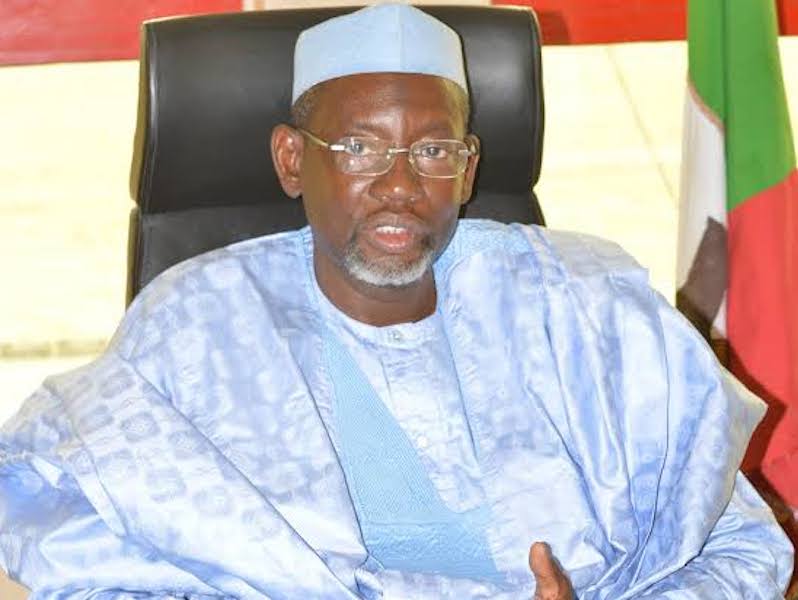 A capital market scholar, Prof Uche Uwaleke, has stressed the need for the Federal Government to finance the 2021 budget deficit of over N5 trillion through the capital market.
A capital market scholar, Prof Uche Uwaleke, has stressed the need for the Federal Government to finance the 2021 budget deficit of over N5 trillion through the capital market.
Uwaleke, President, Capital Market Academics of Nigeria, said this at a webinar, while presenting a paper titled: Capital Market Pathways to Financing the FGN Budget Deficits (2021-2023) on Tuesday in Lagos.
The webinar was organised by the Chartered Institute of Stockbrokers (CIS) to present its Annual Global/Nigerian Economic Report themed: “The Nigerian Economic Review 2020 and Outlook for 2021 With Recommendations”.
He advised the Federal Government to fund the budget deficit by accessing the capital market for Green Bonds, securitisation and privatisation of some its entities.
According to Uwaleke, the budget is a product of the Medium Term Expenditure Framework (2021 to 2023), hence, the need to depend on the capital market to finance the huge deficit in that framework which amounts to about N15 trillion.
“Government has very little fiscal room to manoeuvre, the deficit this year is over N5 trillion, in 2022 we have another N5 trillion and the year after that, another N5 trillion and these figures are just projections because they are likely to increase.
“By the look of things, there might be a reintroduction of subsidy because oil price is going up and there is the fear that the government may be armstrong with the deregulation it is pursuing and may be compelled to subsidise petrol one way or the other which will lead to deficit.
“I also see increase in deficit coming from the health sector as a result of the vaccine procurement, specifically as it will attract more attention and more money will by pumped.
“For 2021, government has earmarked a little over N4 trillion for infrastructure, so where is that going to come from? So my submission is that the capital market is the best route to get this money.
“Money from taxes can be used in recurrent spending and we can also channel to education and health but money for infrastructure should come from the capital market basically,” Uwaleke said.
On his part, Dr Biodun Adedipe, Chief Consultant, B. Adedipe Associates (BAA), said that the first quarter of 2021 may likely see Nigeria coming out of economic recession.
Adedipe said that Nigeria’s Gross Domestic Product (GDP) recorded over 70 per cent in the third quarter of 2020, which meant, the economy would have been better if COVID-19 had not surfaced.
“Nigeria’s case is like an aberation in the sense that the rate of COVID-19 infection in Nigeria is far lower than what was predicted.
“Secondly, we often talk about the economy in recession but hardly talk about the country’s GDP as at the third quarter of 2020 had already recorded 74.5 per cent of our GDP in 2019, meaning if COVID-19 did not slow us down, the outcome of the fourth quarter will likely get us in the trajectory to recovery.
“Hence, we see the Nigerian economy going into recovery by first quarter of 2021, we are waiting for the NBS to publish the data for the 2020 fourth quarter, which may likely get us to the same level our economy was in 2019.
“If that also plays out as expected, for us in BAA, we are looking at anything between 2.34 and 2.35 per cent growth,” he said.
Adedipe also projected that three sectors namely agriculture, ICT and manufacturing would drive economic growth and the country’s GDP in 2021.
“Looking at the projections for the price of crude oil through City Bank, Morgan Stanley, IMF and the likes, there is an expectation that the price of crude oil will be between 66 and 68 dollars per barrel depending on the one you are looking at.
“As we speak, bodyline has crossed $60 per barrel and that is Nigeria’s premium crude.
“So, in terms of production and export, the figures will be lower but when you look again at the sectors and the four critical sectors we should pay attention to are agriculture, ICT, manufacturing and surprisingly, traditional trade.
“Out of the four major contributors to the GDP, agriculture, ICT and manufacturing contributed more and we do not expect them to slow down this year. 2021 looks more positive than 2020, because we expect more improvements in several sectors of the economy.
“Looking critically, more sectors grew in 2020 than the ones that went down,” he added.
Also spesking, Mrs Kemi Akinde, Economic Consultant, said that monetary policy was the key driver of the stock market performance in 2020 and should be consistent.
Akinde noted that monetary policy should progress on a consistent manner and not on uncertainty to boost investor confidence.
She called on the Securities and Exchange Commission to ensure automation of capital market processes to enable operators track applications online.
Akinde added the Capital Market Operators need to step up on digital transformation and indigenous products development to boost market depth and liquidity. (NAN)


